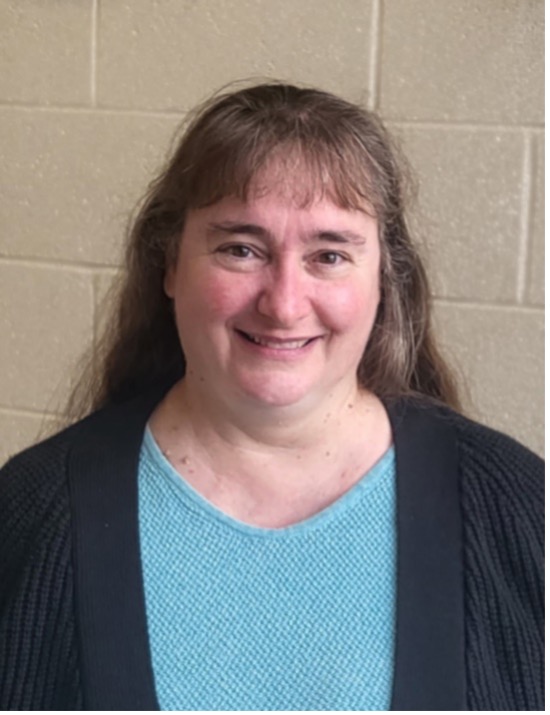
Translation and Application Core
Translation blueprint
The Translation and Application Core provides infrastructure and support for translational aging research. Features include the Nonhuman Primate Pipeline that facilitates translation of insights gained from rodent studies, the Liquid Biopsy Platform with rodent, nonhuman primate, and human capabilities to support translation and reverse translation, and the Geroscience Accelerator to facilitate translation to early human studies. Access to Small Molecule, Medicinal Chemistry, Pharmacology, and Flow Cytometry Services is also available.
T&A Core Directors
Leader
Ricki Colman, PhD
rcolman@primate.wisc.edu


Co-Leader
Joshua Lang, MD
jmlang@medicine.wisc.edu
Co-Leader
Adam Konopka, PhD
akonopka@medicine.wisc.edu

Features of the Translation and Application Core
Leader: Joshua Lang, MD – jmlang@medicine.wisc.edu
Translational Biomarkers
Minimally invasive liquid biopsies have revolutionized biomedical research. Using small amounts of biospecimens (blood, plasma, urine), the biology of health and disease can be tracked effectively longitudinally in short (minutes) or expanded (years) time frames and in large numbers of subjects. The platform will facilitate in-depth translational and reverse translational studies. For example, a biological age index derived from laboratory animal studies can be adopted for use in more translational models (nonhuman primates) or in humans. Biomarkers derived from clinical studies can be reverse translated for use in mechanistic studies, using models that allow for more controlled study design, include genetic malleability, ease of pharmacological application, and have shorter lifespans.
The Liquid Biopsy platform takes advantage of a microfluidic engineering concept that was developed into a microscale technology. Modalities include exploratory (biologic plausibility but performance characteristics and reproducibility not established), and integrated (analytically validated biomarkers), with options to generate integral biomarkers (CLIA-certified biomarkers). Standard analytes purified range from plasma for cytokines, metabolites, and exosomes as well as nucleated cells for immune cell studies. The analyses also include cell phenotyping, gene expression profiling, and genetic analysis among others. The Liquid Biopsy Platform leverages considerable investment in infrastructure as part of the UWCCC Circulating Blood Biomarkers Core and validated assay development within the WNPRC Assay Services laboratories.
Leader: Ricki Colman, PhD – rcolman@primate.wisc.edu
Aging in nonhuman primates (NHP)
The NHP Pipeline facilitates translation of insights gained from biology of aging studies as the next step along the translational pathway, providing access to NHP biobanks in addition to supporting potential prospective studies. NHPs are the phylogenetically closest relatives of humans sharing ~93% sequence identity with the human genome and provide physiologically important and clinically relevant models for the evaluation of the biology of aging and age-related diseases. The rhesus macaque (Macaca mulatta and Macaca fascicularis) is a well-characterized aging model with a lifespan measured in decades. They develop and age similarly to humans, and display patterns of eating and sleeping that mirror those of humans. The common marmoset (Callithrix jacchus) has a relatively short lifespan, high fertility, rapid development, small size and human-like social structure.
Curated and facilitated access to WNPRC will provide the resources and wide-ranging expertise in nonhuman primate biomedical research needed to guide investigators along the translational pathway. The NHP pipeline will provide access to extensive electronic health records system, including colony management, health, pathology and experimental data for all animals that ever lived at the WNPRC. The NHP team will work with WiNSC investigators to optimize experimental design (species, age, feasibility) and facilitate access to tissues and associated metadata that generally includes lifelong records of all clinical, behavioral and experimental experiences. Importantly, funding for aging focused pilot studies using NHP is offered through an annual competition and supported by a joint WiNSC/WNPRC initiative.
Translation to humans
Human subject de-identified data and biospecimens from cross-sectional studies are available through the Translational Science BioCore Biobank. UW-Madison is home to repositories of data and biospecimens from over 32,000 participants including NIH and UW funded ongoing longitudinal human aging studies.
The Translational Science BioCore (TSB) Biobank is part of the UW Carbone Cancer Center and human tissues, blood and other biospecimens that are prospectively collected, processed, and stored for distribution to investigators to promote basic, translational, and clinical research. The Biobank contains samples from nearly 7,000 unique donors, representing a broad array of age-associated disease, often with matched normal controls, tissue microarrays from multiple cancer types, and blood from healthy volunteers.
Geroscience Accelerator
Leader: Adam Konopka, PhD – akonopka@medicine.wisc.edu
The ability to take insights gleaned from research on the basic biology of aging to a level where clinical and/or commercial ventures may be developed requires expertise in molecular screening, molecule design and development, as well as rigorous bioanalysis and quality assessments. The Geroscience Accelerator connects WiNSC affiliates with existing resources on campus with the goal of advancing the adaptation of biology of aging research for novel interventions and treatments, providing expertise and service access in drug modeling, synthesis, and design, to ensure efficiency and efficacy in identification of bioactive agents with the desired properties. The WiNSC will not sponsor human clinical trials; however, we will provide the necessary resources, information, and experience to increase the trajectory of translation.
The Geroscience Accelerator Protocol Development Program offers a range of services for planning investigator initiated clinical research which includes biostatistical support to determine rigorous study design, adequate sample size, and recruitment tools to build relationships with and reach target populations. Through this program WiNSC members can schedule focus groups of leading experts for feedback, develop clinical research protocols and workflows, identify appropriate templates to fulfill regulatory requirements and scientific editing for grant applications, protocols, and regulatory documents to meet investigator needs. For researchers interested in more advanced clinical trials (Phase 2 or 3), this program offers educational and training opportunities to manage multi-site studies. The FDA Regulated Research Office provides guidance on navigating and communicating with the FDA in particular for investigational new drug (IND) and new device (IDE) applications. Services include guidance on early regulatory strategy development, resources covering a wide range of submission types, and preparation for meetings with the regulatory framework including educational and training on FDA regulatory requirements
The Geroscience Accelerator FDA Navigation Program partners with UW’s Institute for Clinical and Translational Research (ICTR), to provide access to training compliance and navigation in protocol development for FDA regulated research. Access to human longitudinal data and specimens derived from Wisconsin cohort studies will also be facilitated. Institutional support allows us to cover significant effort of a dedicated Program Coordinator for the Geroscience Accelerator who is well versed in navigating the translational research landscape, ensuring our ability to serve the aging research community beyond UW-Madison, providing guidance in building a framework for translation using similar facilities and clinical networks at their home institution.
The Geroscience Accelerator Drug Development Hub includes access to UW Madison pre-clinical therapeutic development services. Investigators interested in identifying new reagents, improving physical properties of old reagents, scaling up promising reagents, or taking the first steps to validate potential new pharmacological agents can find what they need here.
Small Molecule Screening Facility (SMSF)
The SMSF provides expertise, support, and services for drug discovery including High Throughput Screening (HTS) of in-house and commercial small molecule libraries, Dharmacon human RNAi library; molecular modeling, docking and virtual screening. WiNSC investigators will be guided through assay development, ensuring range, sensitivity, and optimized methodology, to maximize the potential for identifying novel gerotherapeutics.
Medicinal Chemistry Center (MCC)
The MCC is a center of expertise focused on providing collaborative drug discovery services to chemists, biologists, and the biomedical community across all therapeutic areas. Services include: hit-to-lead optimization; large scale preparative synthesis; chemoinformatic analysis and rational drug design; natural product fractionation and analytical determination of chemical purity and identity. WiNSC investigators will be guided through assay development, ensuring range, sensitivity, and optimized methodology, to maximize the potential for identifying novel gerotherapeutics with predicted ability to influence aging or the progress of age-related disease.
Zeeh Pharmaceutical Experiment Station
The Zeeh Pharmaceutical Experiment Station provides laboratory services related to compound physical/chemical characterization and basic formulation development, including pharmaceutical and biopharmaceutical development and drug delivery expertise. The station provides pharmaceutical and biopharmaceutical development and drug delivery expertise to enable new or early-stage chemical and biologic entities to progress through proof-of-concept evaluation, enter preclinical testing, and to ensure that an appropriate chemistry, manufacturing and controls (CMC) data package is generated for licensing or in anticipation of regulatory filings for human clinical trials. This includes pre-formulation and drug property prediction, solid form selection, advanced physiochemical analysis, formulation, analytical and stability services.
Cancer Pharmacology Lab
The Cancer Pharmacology Lab offers expertise and services in preclinical pharmacology to support drug development. Available services include extensive instrumentation for pharmacokinetics (PK)/pharmacodynamics (PD)/pharmacogenetics (PG) assays, and analytical assays, and preclinical therapeutics analysis such as maximally tolerated dose determinations and PK and tissue distribution. Both non-compartmental and population PK/PD/PG modeling are also available. Preclinical therapeutics analysis is also offered including maximally tolerated dose determinations and PK and tissue distribution.
Longitudinal Human Aging Studies

Wisconsin Nathan Shock Center
1685 Highland Avenue
Madison, WI 53705
Contact Us:
winsc@medicine.wisc.edu